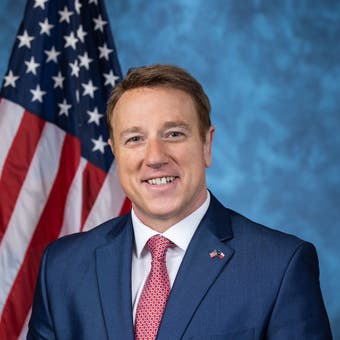Secret Service Director Kimberly Cheatle resigns
Rep. Pat Fallon, R-Texas, discusses Cheatle's decision to step down following Monday's heated House hearing on the security lapses that allowed the assassination attempt on former President Trump at his Butler, Pennsylvania rally.
"The assassination attempt on former President Donald Trump on July 13th is the most significant operational failure at the Secret Service in decades."
These are not my words: This is from former Secret Service Director Kimberley Cheatle’s opening testimony at Monday's hearing before the House Committee on Oversight and Accountability.
One would think that Cheatle had done her research to know every detail of the events of that day; however, her testimony suggested the total opposite. Former Director Cheatle provided nonsensical, incoherent, and unsubstantive answers to basic questions from my colleagues and me on both sides of the aisle.
I’m glad to see former Director Cheatle tender her resignation on Tuesday. In truth, I would have liked to have seen her fired instead. Accountability starts from the top, and we must take a hard look at the failures that led to President Trump’s near-assassination at the hands of a 20-year-old, untrained loner.
Former Director Cheatle’s bewildering comments immediately following the Butler, Pa., assassination attempt, combined with her inept testimony before Congress, have proved troubling for the nation.
For example, the day after the assassination attempt, Cheatle made an objectively preposterous comment when explaining why the shooter’s building was not manned with agents or any other law enforcement entity, stating, "That building in particular has a sloped roof at its highest point; there’s a safety factor that would be considered there that we wouldn’t want to put somebody up on a sloped roof."
At Monday’s hearing, I zeroed in on this insane excuse. I asked whether the Secret Service has a policy on "sloped roofs." She said they do not.
In fact, we now know that the pitch of the sloped roof in question was at such a minor incline that it was essentially ADA compliant for wheelchairs. Cheatle’s statement is even more perplexing when you consider that FBI counter snipers were stationed on a nearby sloped roof with a significantly steeper incline.
This bizarre excuse of the sloped roof is just one of many deeply concerning elements of the greatest "Secret Service operational failures in decades." However, adhering to some of the most basic protective services principals would have easily deterred the shooter from coming within inches of setting off an international catastrophe.
This all begs the question: How did the security plan get approved and who at what level would approve such a poor plan?
As a former military officer and after speaking with various whistleblowers and sources that are former Secret Service and FBI personnel, I’m cognizant of the importance of detailed mission planning, which includes reconnaissance, rehearsals, and pre-coordination with outside elements, to ensure mission success.
Cheatle’s comments and testimony make clear that this mission was on the pathway to failure during the planning process.
CLICK HERE FOR MORE FOX NEWS OPINION
First, the Secret Service did not conduct a detailed vulnerability assessment. For an outdoor venue with a former president and an active threat from Iran against him, this critical step should have been automatically completed. The vulnerability assessment would have immediately pinpointed the shooter’s building, which was a mere 130 yards from President Trump’s podium, as a location that required a manned detail.
Secondly, there was an evident disconnect between Secret Service and local law enforcement. Local police identified the shooter on the rooftop several minutes before the shooting but were not able to communicate this to President Trump’s detail.
Basic pre-coordination and rehearsals would have prevented this. Former Director Cheatle knew there was a threat beforehand and she admitted that she had the authority to surge additional resources to protect President Trump. She did not, and unfortunately, the results proved deadly.
CLICK HERE TO GET THE FOX NEWS APP
The obvious lapses in basic security and planning principles are shocking, distressing and extremely troublesome. This can only happen if there is an alarming level of incompetence at the agency’s highest levels.
A change of culture at the Secret Service and the DHS as a whole is required. Former Director Cheatle’s resignation is the first step on what seems like a long journey towards ensuring the safety of all high-profile protectees by the agency whose sole responsibility is to do so–the U.S. Secret Service.













































